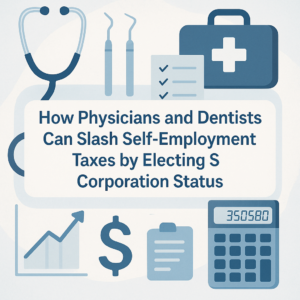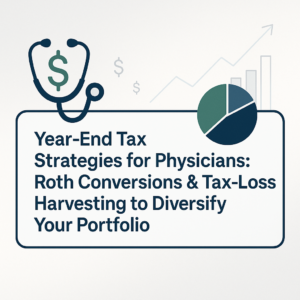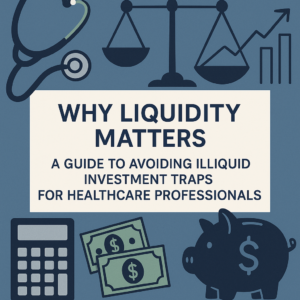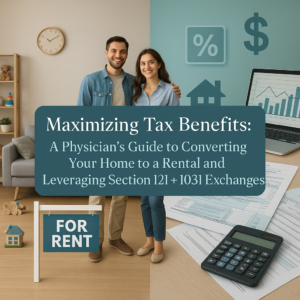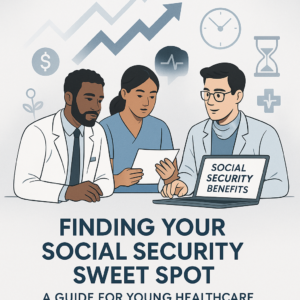Health insurance is a contract between you and an insurance company that helps cover the costs of medical expenses. In exchange for a premium, the insurer agrees to pay a portion of your eligible healthcare costs.
Having health insurance is essential for protecting yourself against high medical expenses. Unexpected illnesses or accidents can lead to significant financial strain without adequate coverage. For healthcare professionals, understanding health insurance is not only important for personal reasons but also enhances your ability to advise patients.
Employer-Sponsored Health Insurance
Employer-sponsored health insurance is a group health plan that employers offer to their employees. Employers often negotiate with insurance companies to provide plans at reduced rates due to the collective bargaining power of a group.
Advantages
Cost Sharing: Employers typically pay a portion of the premiums, reducing your out-of-pocket costs.
Convenience: Enrollment is usually simple, and premiums may be deducted directly from your paycheck.
Guaranteed Coverage: Approval is generally automatic, without the need for medical underwriting.
Disadvantages
Limited Choices: Plan options may be limited to what your employer offers.
Job Dependence: Coverage is tied to your employment; losing your job means losing your insurance.
Generic Plans: May not cater to individual healthcare needs or preferences.
Private Health Insurance
Private health insurance is purchased individually from insurance companies. It offers a variety of plans and coverage options, allowing for more personalized healthcare solutions.
Advantages
Customized Plans: Ability to choose a plan that fits your specific needs.
Portability: Coverage isn’t tied to employment, providing continuity despite job changes.
More Options: Access to a wider network of providers and specialists.
Disadvantages
Higher Costs: Premiums are typically higher since there’s no employer contribution.
Medical Underwriting: May require health questionnaires, and pre-existing conditions can affect eligibility.
Complexity: More responsibility in researching and managing your plan.
Tax Implications
Employer-sponsored premiums are often deducted from your salary pre-tax, reducing taxable income. Private insurance premiums are paid with after-tax dollars, though self-employed individuals may qualify for deductions.
Making the Right Choice
Assessing Personal Needs
- Health Status: Consider current health, family medical history, and anticipated medical needs.
- Financial Situation: Evaluate your budget for premiums, deductibles, and potential out-of-pocket expenses.
- Career Plans: Reflect on job stability and potential changes in employment.
Case Study: A Young Physician’s Dilemma
Dr. Sarah Mitchell, a (fictional) 30-year-old newly minted physician, must choose between her hospital’s employer-sponsored health insurance and a private plan. She is single, healthy, and has student loan debts to consider.
Employer-Sponsored Plan:
Monthly Premium: $200 (with employer covering an additional $400)
Deductible: $2,500
Out-of-Pocket Maximum: $5,000
Network: Regional, with most local providers included
Private Insurance Plan:
Monthly Premium: $650
Deductible: $1,500
Out-of-Pocket Maximum: $4,000
Network: National, including specialists in other states
Considerations:
- Cost: Employer plan is more affordable monthly.
- Coverage Needs: Sarah doesn’t require extensive medical care currently.
- Future Plans: Considering fellowship opportunities that might require relocation.
For Sarah, the employer-sponsored plan offers cost savings and adequate coverage for her current needs. The portability of the private plan is attractive but may not justify the higher cost at this stage.
Tips for Maximizing Your Health Insurance Benefits
- Stay In-Network: To minimize costs, use healthcare providers within your plan’s network.
- Preventive Care: Take advantage of free preventive services to maintain good health.
- Understand Your Plan: Know the details of your coverage to avoid unexpected expenses.
- Utilize HSAs and FSAs: If available, contribute to health savings accounts for tax benefits.
- Review Annually: Life changes can affect your needs; reassess your insurance choices regularly.
Final Thoughts
Choosing between employer-sponsored and private health insurance is a significant decision that impacts both your health and financial well-being. As a young healthcare professional, weighing the costs, benefits, and how each option aligns with your personal circumstances is essential.
Consider consulting with a financial advisor who understands the unique needs of healthcare professionals. They can provide personalized guidance to help you make an informed choice that supports your career and life goals.
Remember, the right health insurance plan not only provides peace of mind but also forms an integral part of your overall financial strategy as you advance in your profession.
Disclaimer: This article is for informational purposes only and does not constitute financial or insurance advice. Please consult with a professional advisor before making any decisions regarding your health insurance options.


